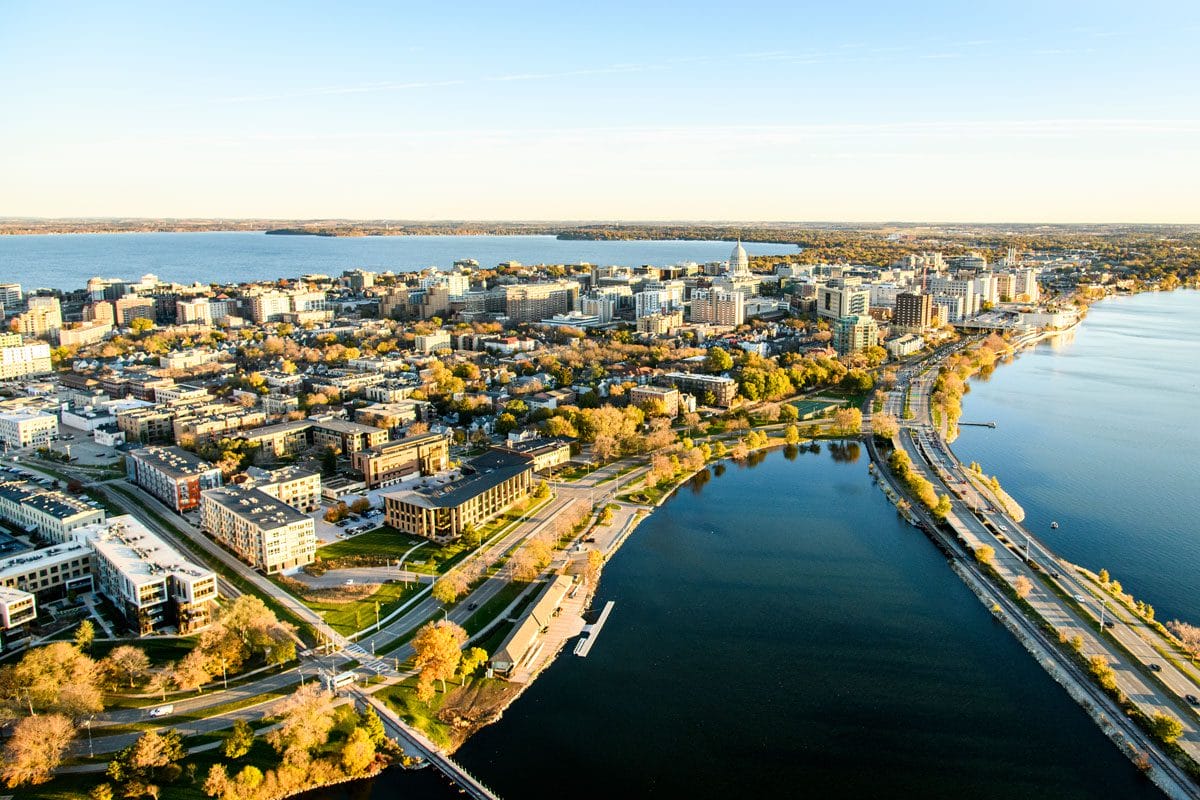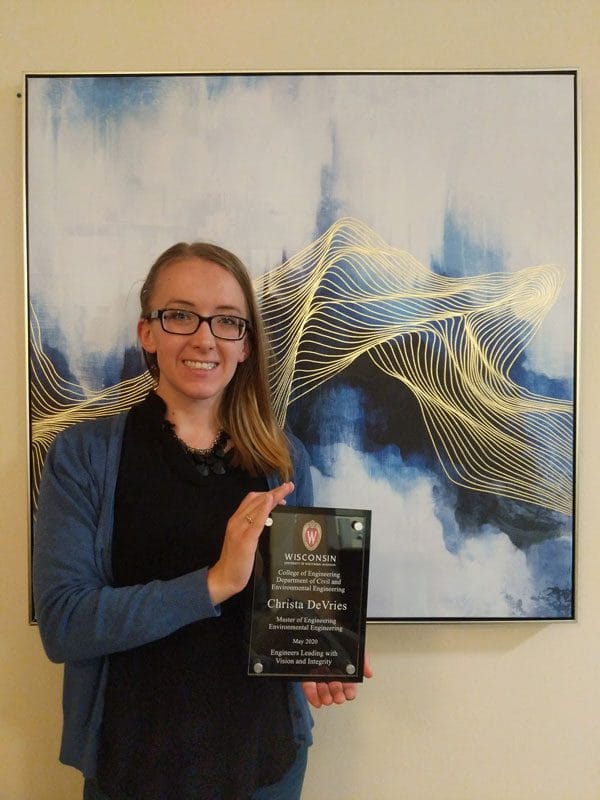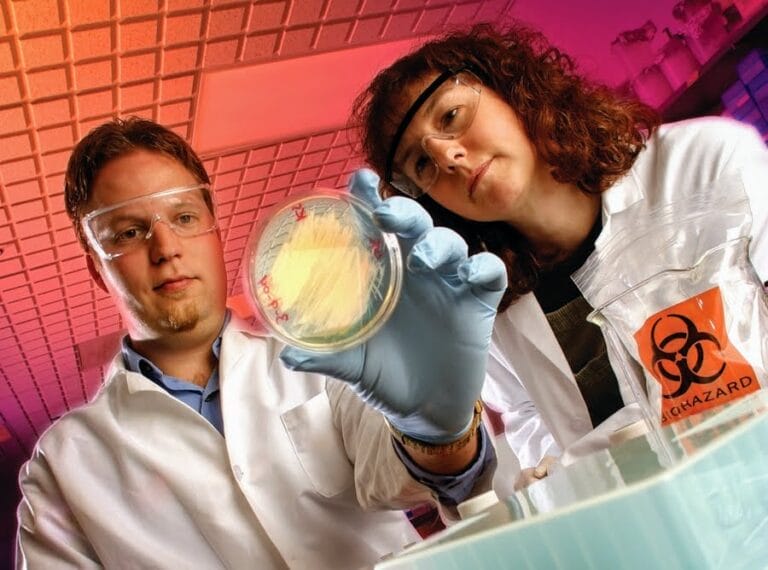
Environmental engineering graduate looks to the future
When Christa DeVries enrolled in the Master of Engineering in Environmental Engineering program at the University of Wisconsin–Madison, it wasn’t because she was looking to explore an entirely new industry. She had previously earned two bachelor’s degrees in civil/environmental engineering and environmental studies in 2013 but was looking to build on her previous education and enhance her career.

“I chose UW–Madison because it was important to me to get my master’s degree from a university with a history of excellence in the field of environmental engineering,” says DeVries. “It was definitely a bonus that the state of Wisconsin has some progressive wastewater treatment regulations and training, so many of the professors are on the cutting edge of their field.”
A leader in engineering and environmental sciences
While the 30-credit, three-year graduate program is conducted entirely online, it’s designed to foster collaboration. Core program courses are delivered in a live webinar format which encourages student-student and student-instructor interaction. In addition to core courses, a capstone environmental engineering design course utilizes industry mentors and teaches the students how to select and design a cost-effective and beneficial solution to a real problem.
“Students have differing professional backgrounds and levels of experience, and the synchronous classes and teamwork allows them to form a community and to learn from each other as well as from instructors and industry mentors,” says program director Jane Carlson. “Students learn to work effectively and cooperatively on a team, which helps prepare them for increasing levels of responsibility and for leadership positions in their careers.”
Broadening her capabilities and enhancing her career
DeVries didn’t have to wait until she finished the program to land a job in her desired field. Midway through, she accepted an environmental engineering position at a mid-sized civil engineering design firm, making the move from Chicago to the Florida Panhandle. Landing such a position while earning her master’s degree would not have been possible had the program not been online and flexible enough for her schedule.
“Many of the professors post a syllabus at the start of the semester and outline any weeks or projects where more time than normal may be required to complete the coursework,” says DeVries. “This was important so that I could plan any times where I might need to spend more time on schoolwork than usual.”
After graduating this May and recently earning her professional engineering license, DeVries uses many of the tools and knowledge acquired in her master’s program in her day job, which focuses primarily on water and wastewater treatment plant design and water and sewer conveyance systems. And while she recommends the Master of Engineering in Environmental Engineering program at UW–Madison to other students looking to expand their capabilities, she acknowledges the hard work it took to get there.
“It’s important for future students to think of what they’re hoping to get out of this program and make sure that they’re striving toward those goals,” says DeVries. “It’s easy to get distracted, but it’s important to remember that you’re completing the master’s degree to become a better engineer.”
Learn more about UW–Madison’s Master of Engineering in Environmental Engineering.
Published on Jun 24 2020
Last Updated on Jul 11 2024
Categories: Professional Degrees & Certificates



